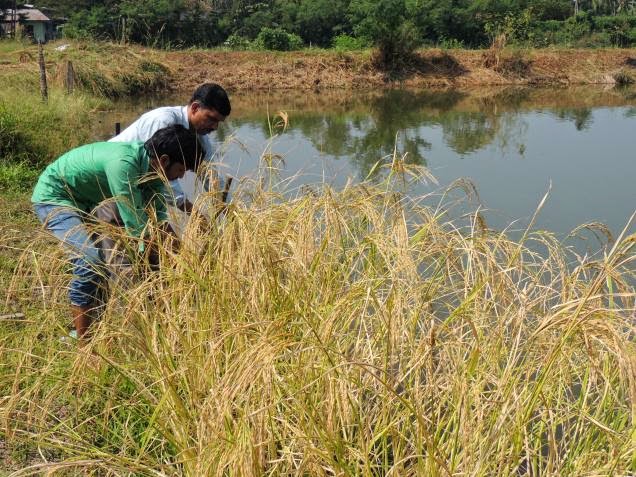(Traditional paddy and shrimp cultivation in the northern districts is known as Kaipad farming and in the south it is Pokkali farming).
But, some of the seeds, conserved in small quantities, are being planted in an effort to revive the traditional varieties.
There are 4,100 hectares of Kaipad fields in Kasaragod, Kannur, and Kozhikode districts. Kannur district has the largest extent of fields.
Paddy seeds used in Kaipad farming are resistant to salinity. These have not been conserved, except for individual efforts by some farmers and groups. The traditional seeds once prevalent were ‘kuthir,’ ‘orkayma,’ ‘orthadiyan,’ ‘chovverian,’ ‘orpandy,’ ‘kuttoosan,’ ‘kandarkutty,’ and ‘balivithu.’ Only ‘kuthir’ and ‘orkayma’ are still being cultivated by farmers.
Chemical fertilizers are not used for the cultivation of these varieties as well as hybrid varieties such as Ezhome-I, II, and III developed by scientists at the Kerala Agricultural University (KAU)’s College of Agriculture at Padannakkad in Kasaragod.
The intervention of the Agency for Aquaculture Development, Kerala (ADAK) for the promotion of traditional paddy and shrimp cultivation systems has helped in the revival of some Kaipad seeds and fields, says Dineshan Cheruvat, ADAK Deputy Director and Manager of the agency’s fish farm at Eranholi, near Thalassery.
A self-help group of beneficiaries, under the ADAK’s integrated traditional farming system, recently gave a tonne of traditional seed varieties to farmers in Ernakulam district, he says.
“A Kaipad farmer recently gave me a handful of ‘orthadiyan’ and ‘chovverian’ seeds, now rare. Efforts are now being made to multiply these at the fish farm,” says Mr. Cheruvat.


No comments:
Post a Comment